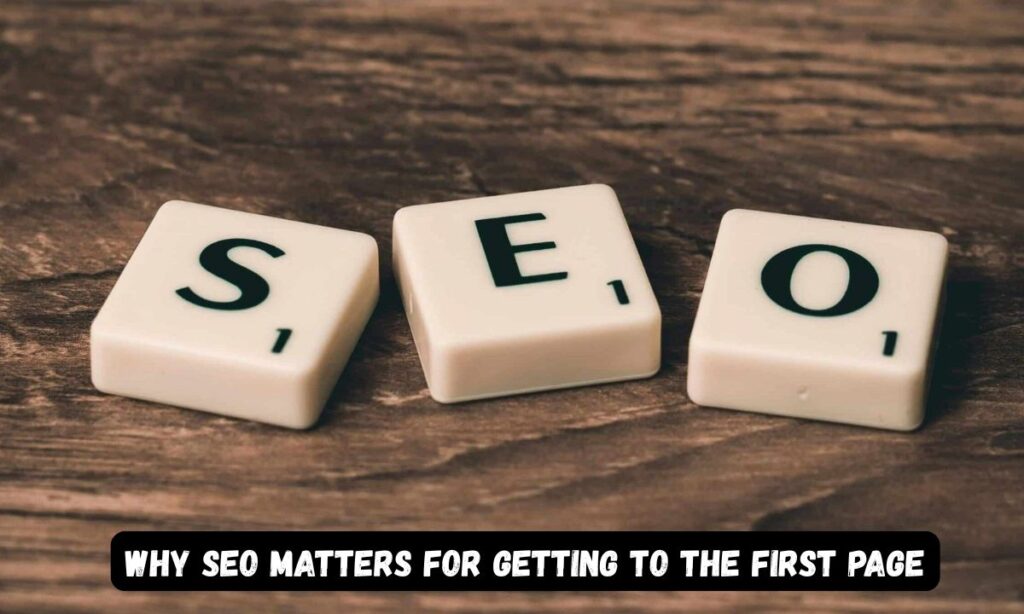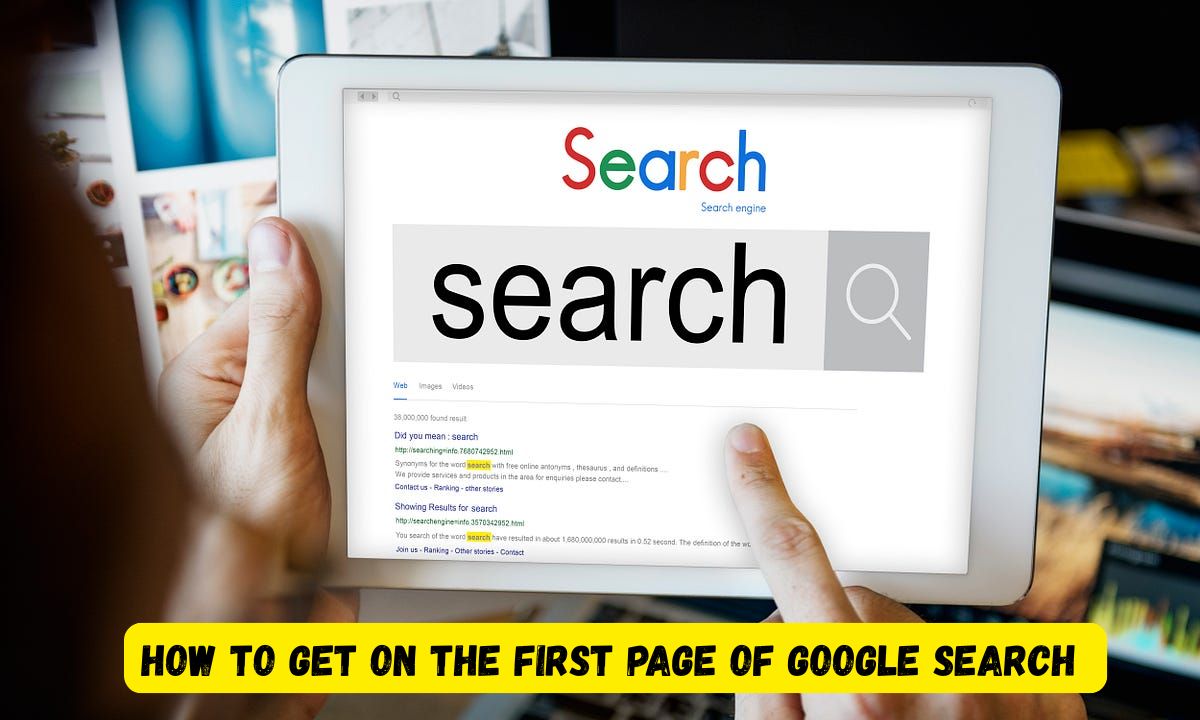Everyone wants to be found online these days. Visibility on Google means more opportunities for your business. David Aziz has developed effective strategies for first-page rankings. His methods focus on sustainable growth and genuine value creation.
Getting to Google’s first page requires consistent effort and smart planning. The techniques shared here represent years of tested approaches in search engine optimization for personal brands. You’ll learn practical steps to improve your site’s performance on search results.
These strategies work for both new websites and established domains seeking better rankings. Digital marketing authority comes from implementing proven methods consistently over time. Let’s explore how to make your online presence shine through better search visibility.
Understanding the Importance of SEO for Ranking on Google
Search Engine Optimization determines how visible your website becomes online. Google uses complex algorithms to decide which pages deserve top positions. SEO isn’t just about technical tweaks but creating value for users.
Search algorithm understanding helps you make better optimization decisions. Google evaluates hundreds of factors before positioning your content. The ranking process happens automatically whenever Google crawls your site.
Website ranking improvement comes from addressing both on-page and off-page factors. SEO connects your content with people actively searching for what you offer. The better your optimization, the more likely you’ll appear on coveted first-page positions.
Why SEO Matters for Getting to the First Page?
First-page results receive over 90% of all search traffic. Being on page two or beyond dramatically reduces your visibility. Organic search visibility provides sustainable traffic without ongoing ad costs. Users trust organic results more than paid advertisements.
The top three organic positions capture most clicks from search results. David Aziz SEO techniques emphasize earning these coveted positions through quality. SEO creates a foundation for long-term online success.

Your competitors are actively optimizing their sites for better rankings. Staying competitive requires understanding current SEO best practices. First page search results strategies deliver measurable return on investment.
The Role of Keywords in SEO Strategy
Keywords connect searchers with your content. Understanding what terms people use is fundamental to SEO success. Search intent analysis reveals why people search for specific terms. Different keywords indicate different stages in the customer journey.
Focusing only on high-volume keywords often leads to disappointment. Long-tail keywords with lower competition offer better ranking opportunities. Natural language search patterns have become more important with voice search growth.
User searches are becoming more conversational and question-based. Topic modeling for SEO helps create comprehensive content that covers related concepts. Keywords should be incorporated naturally throughout your content.
READ THIS BLOG: George Strait Heart Attack: The Truth Behind the Rumors & His Real Health Status
David Aziz’s Proven Strategy for SEO Success
David Aziz approaches SEO as an integrated system rather than isolated tactics. His methodology adapts to Google’s evolving algorithms. Success requires patience and consistent implementation. The foundation begins with thorough competitive analysis.
Understanding user behavior drives all strategic decisions. Entity recognition for personal brands helps establish topical authority. Content, technical elements, and off-page factors must work together harmoniously.
David emphasizes measuring results and adjusting strategies accordingly. Small improvements compound over time into significant ranking gains. Search behavior analysis guides content creation and optimization efforts.
1. High-Quality Content Creation
Content quality directly influences Google rankings. Every page should serve a clear purpose for visitors. Answer specific questions your audience is asking online. Make your content comprehensive yet easy to digest.
Use conversational search optimization to match natural language patterns. Short paragraphs and clear headings improve readability. Content relevance signals help Google understand your page’s purpose. Original research and data make your content more valuable and linkable.
User experience signals like time-on-page affect how Google evaluates quality. Update your content regularly to keep it accurate and fresh. Include relevant multimedia elements to enhance engagement.
2. On-Page SEO Optimization
Title tags remain critical for ranking success. Include your target keyword in the first 100 characters. Meta descriptions influence click-through rates from search results. Header tags organize content for both users and search engines.
Internal linking connects related content on your website. Image optimization requires descriptive filenames and alt text. Page URLs should be concise and include relevant keywords. Optimize each page for a primary keyword and related terms.
Proper keyword density prevents over-optimization penalties. Schema markup helps search engines understand your content better. Page load speed affects both rankings and user experience. Each page should have a clear call-to-action for visitors.
3. Building High-Quality Backlinks
Backlinks remain powerful ranking signals for Google. Quality matters far more than quantity in link building. Relevant industry sites provide the most valuable links. Guest posting builds relationships while earning backlinks.
Content so good others naturally want to reference it attracts links. Resource pages and industry directories offer targeted link opportunities. Broken link building helps webmasters while earning links for yourself. Link relevance is closely evaluated by Google’s algorithms.
Diverse anchor text appears more natural to search engines. Local citations boost rankings for location-based searches. Avoid artificial link schemes that violate Google’s guidelines. Relationship building leads to natural link acquisition.
4. Mobile-Friendly and Fast-Loading Website
Google prioritizes mobile-friendly websites in rankings. Most searches now happen on mobile devices. Test your site regularly on different screen sizes. Page speed directly impacts both rankings and conversions.
Compress images before uploading to your website. Minimize HTTP requests by combining files when possible. Enable browser caching to speed up repeat visits. Implement Accelerated Mobile Pages for content pages when appropriate.

Google’s mobile-first indexing evaluates your mobile version first. Responsive design adjusts automatically to different devices. Eliminate render-blocking JavaScript that slows page loading. Optimize for Core Web Vitals metrics that Google measures.
5. Technical SEO
Technical SEO creates a strong foundation for all other efforts. XML sitemaps help Google discover and index your content. Robots.txt files guide search engine crawlers properly. Fix duplicate content issues that confuse search engines.
Implement canonical tags for similar content variations. Secure your site with HTTPS encryption. Create a logical site structure for easy navigation. Fix broken links that create poor user experiences. Implement breadcrumb navigation for improved user orientation.
Optimize your site’s crawl budget for larger websites. Use hreflang tags for multi-language websites. Structured data markup enhances search result appearance. Monitor crawl errors in Google Search Console regularly.
Tracking and Analyzing Your SEO Progress
Measurement reveals if your strategies are working effectively. Set clear KPIs aligned with business objectives. Track keyword rankings weekly to identify trends. Monitor organic traffic growth over time. Analyze user behavior to improve content performance.
Compare current performance against historical benchmarks. Document all SEO changes to correlate with performance shifts. Regular reporting helps maintain focus on priority metrics. Share successes with stakeholders to demonstrate SEO value.
READ THIS BLOG: Prostadine Colibrim: Benefits, Uses, and What You Need to Know
Identify underperforming content for improvement opportunities. Track conversions from organic search specifically. Calculate return on investment for your SEO efforts. Competitor ranking changes reveal market opportunities.
Using Google Analytics and Search Console
Google Analytics provides comprehensive visitor behavior data. Search Console reveals how Google sees your website. Connect both tools for maximum insight into performance. Track landing pages that drive the most organic traffic.
Analyze search queries that bring visitors to your site. Monitor click-through rates for different search positions. Identify high-performing content to inform future creation. Discover technical issues that need immediate attention.
Geographic data shows where your visitors come from. Device category reports show mobile versus desktop usage. Set up custom reports for your specific business needs. Monitor site speed metrics through both platforms.
Adjusting Your Strategy Based on Data
Data-driven decisions outperform gut feelings in SEO. Test small changes before large-scale implementation. Prioritize improvements based on potential impact. Reallocate resources from underperforming tactics. Analyze what works for competitors in your space.
Seasonal trends may require temporary strategy adjustments. Algorithm updates sometimes necessitate approach changes. User feedback should inform content improvements. Conversion rate optimization complements SEO efforts.
Double down on content topics that perform well. Address declining rankings promptly with analysis. Learning from failures improves future strategy decisions. Different audience segments may require distinct approaches.
Frequently Asked Questions
How long does it take to rank on Google’s first page?
Most websites take 4-6 months to rank well, but highly competitive industries might require 9-12 months of consistent optimization before seeing first-page results.
What are the most important ranking factors according to David Aziz?
David Aziz emphasizes that high-quality content addressing user intent, combined with quality backlinks from relevant sites and excellent user experience metrics, form the trifecta of ranking success.
How often should I update my content for better rankings?
Quality content should be reviewed and refreshed every 3-4 months, with high-traffic pages getting monthly updates to maintain freshness signals that Google rewards.
Does social media activity directly impact Google rankings?
While not a direct ranking factor, strong social engagement increases your content’s visibility, driving more traffic and natural link opportunities that ultimately improve your SEO position.
Is hiring an SEO expert like David Aziz worth the investment?
For most businesses, professional SEO guidance prevents costly mistakes and accelerates results, typically delivering a 5-10x return on investment through increased organic traffic and conversions.
Conclusion
Getting to Google’s first page requires strategic effort and patience. David Aziz’s proven methods focus on creating genuine value for users. Technical optimization creates a strong foundation for your content.
Quality backlinks remain essential for demonstrating authority. Mobile optimization is non-negotiable in today’s search landscape. Regular analysis helps refine your approach based on real results. SEO is an ongoing process rather than a one-time project.
The most successful websites consistently implement best practices. Sustainable rankings come from authentic value creation rather than tricks. Your SEO strategy should evolve as search algorithms advance.

SEO expert focused on boosting online visibility and driving organic traffic. Passionate about data analysis, strategy, and the latest digital marketing trends.
















